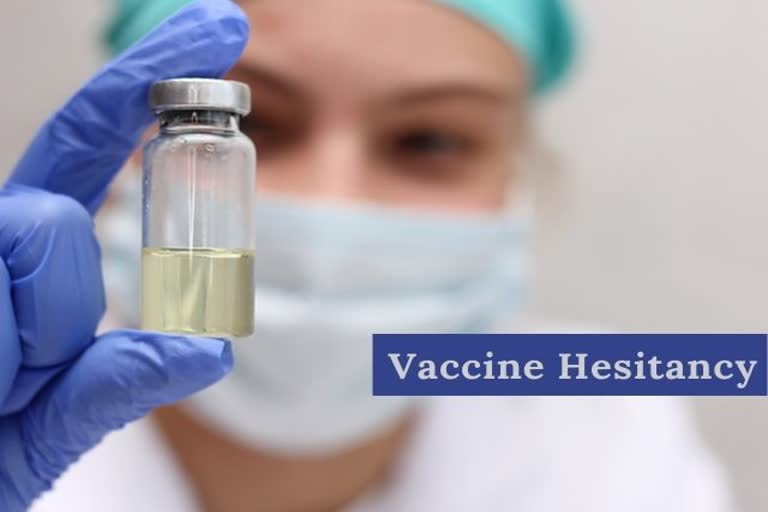A vaccine is a substance used to stimulate the production of antibodies and provide immunity against a particular disease in the body. It is prepared from the causative agent of a disease, its products, or a synthetic substitute, treated to act as an antigen without inducing the disease. On the other hand, inoculation is the introduction of a pathogen or antigen into a living organism to stimulate the production of antibodies. So there is a big difference between these two techniques. While vaccination is the result of scientific research, inoculation is a method discovered empirically in historical times. Sometimes inoculation may cause real disease and kill the subject.
Smallpox vaccinewas the first one, rather than inoculation, that saved millions from death risk. Edward Jenner in the 1790s in Gloucestershire, England discovered that cowpox inoculation prevents smallpox. When this technique was brought to India at the beginning of the 19th-century people suspected foul play. Many people rejected being inoculated. The British officers intelligently designed a way out. They asked a Sanskrit scholar to write a strophe in Sanskrit describing the method of producing smallpox vaccine from a cow's udder. Later this Sanskrit 'reference' was demonstrated as genuine citing from the literature of Ayurveda to make people believe that this technique is indigenous!
The dawn of bacteriology and biotechnology made it possible that antitoxins and vaccines against diphtheria, tetanus, anthrax, cholera, plague, typhoid, tuberculosis, and more were developed through the 1930s. However, the growth of the vaccine industry was not trouble-free. The cutter incident in 1955 in the US was a big setback for vaccines. Instead of inactivated virus, by mistake, the live virus was injected into thousands of children in the US, many developed the disease and few died. This incident shook American society for many years.
In today's world, 5-10 % of people refuse vaccines and it is difficult to convince them. 60% of the population exhibit rationale and can be educated. The rest, 30 to 35% people readily accept the vaccines because they believe in science. It is a matter of silent majority and vociferous minority. Few people publicly rejecting and criticizing the policies of the governments on universal immunization is a big problem in the health sector. The media carried the news of opponents makes others skeptical.
What Goes In A Vaccine?
Vaccine production has come a long way. It has several stages. The viruses are generated on primary cells such as chicken eggs (e.g. for Influenza), or on cultured human cells (for hepatitis A). Vaccine production involves several stages like harvesting, purification, inactivation, freeze-drying, valency assembly, etc. The viruses are cultured at high temperatures and those viruses cannot produce a real disease. Such a method is known as attenuation. Recombinant vaccines are made using the knowledge of DNA engineering like Hepatitis B and HPV vaccines.
Vaccines are mixed with several adjuvants. Without adjuvants, vaccines show little efficacy. The adjuvants help enhance the power of vaccines but still, we don't know why and how these adjuvants work! Aluminum is a common adjuvant. ex: DPT, Anthrax vaccines. Other popular adjuvants are squalene, an oily substance made from shark livers. An extract from the bark of the quillaja tree from South America is also a very useful adjuvant in vaccines. This tree bark was used to make soaps by the Andean people. Scientists are still trying to understand the efficacy of different adjuvants that go with vaccines. Aluminum is a common adjuvant in many vaccines. There were some reports that these adjuvants cause autism in children. This belief is one of the major hurdles in the healthcare industry for universal immunization. The claim has no scientific basis.
In the 1970s, a physician at the Royal College, London announced that the vaccine given against pertussis in children has damaged the brain. But, later in research, this statement could not be proved. Such occasional reports in the press usually discourage people from taking vaccines.
COVID-19 Vaccination
The whole world eagerly waited for the COVID-19 vaccine since the onset of this fatal infection throughout the world. Surprisingly many research institutes, including those in India, could produce vaccines against COVID-19 in a very short period. However, once the vaccines became accessible, many people hesitated and rejected the administration of the vaccine. There were many rumors that spread like wildfire and people, especially those living in the rural areas, denied being a part of the vaccination drive. As a result, people started protesting, not in India, but in many western countries. Many physicians do believe that some adjuvants may harm the health but their benefits outweigh the potential damage.
Also Read:Can Pregnant Women Get COVID Vaccination?
